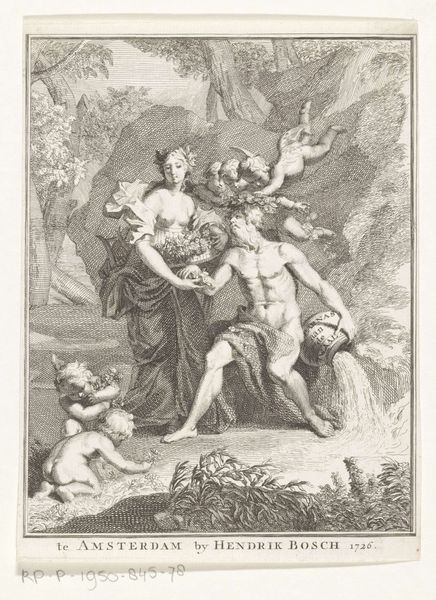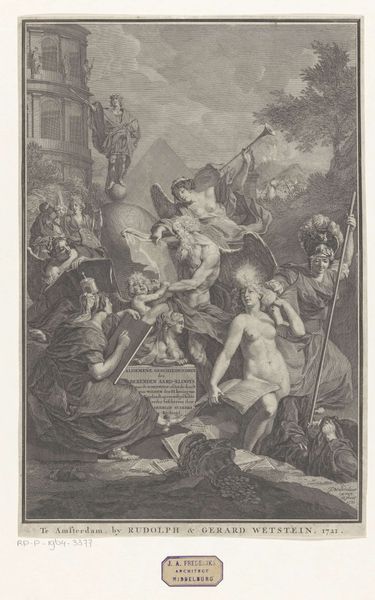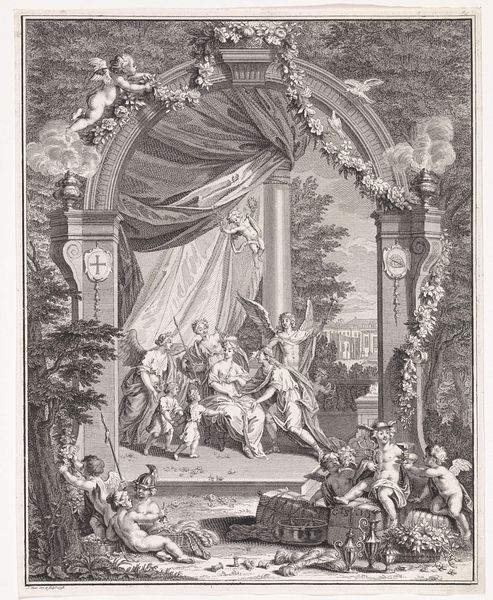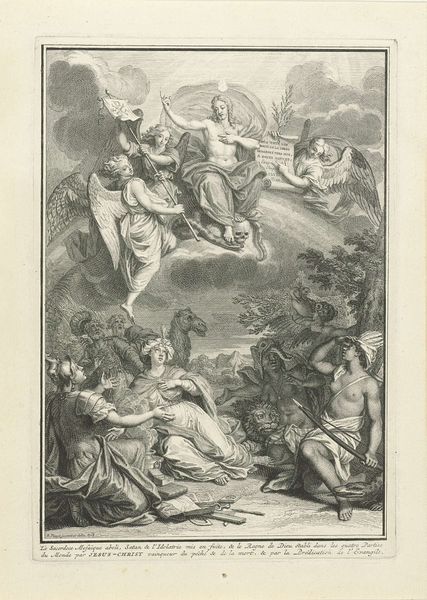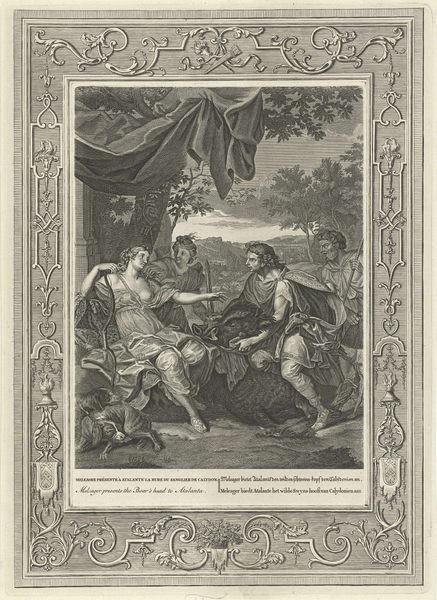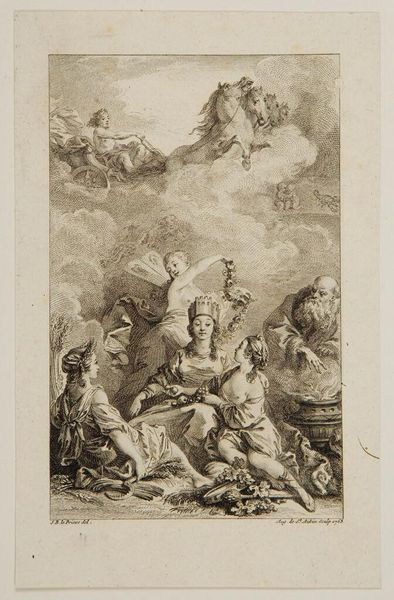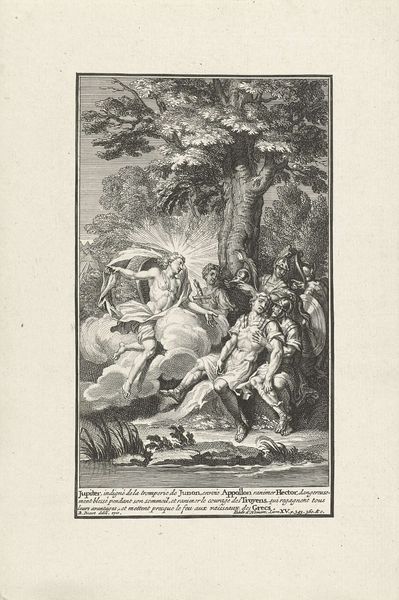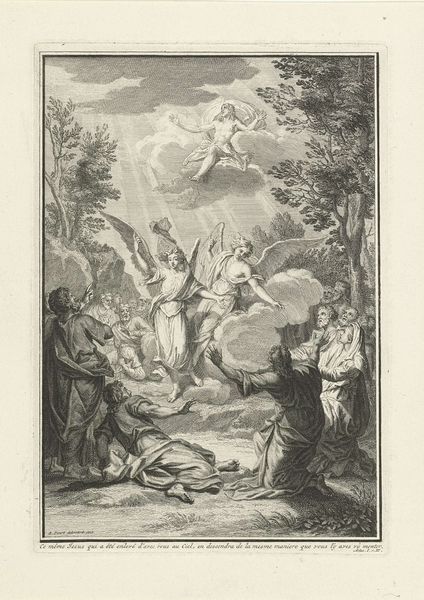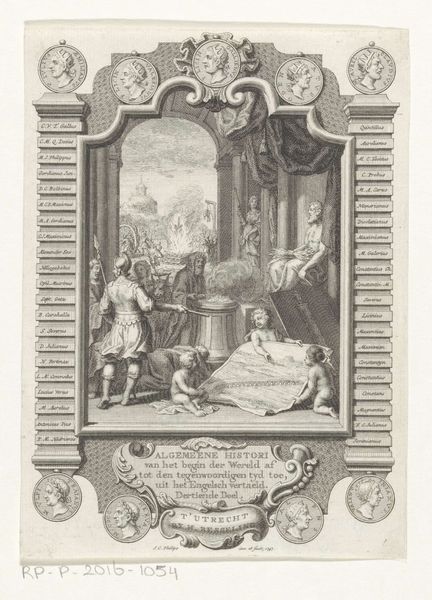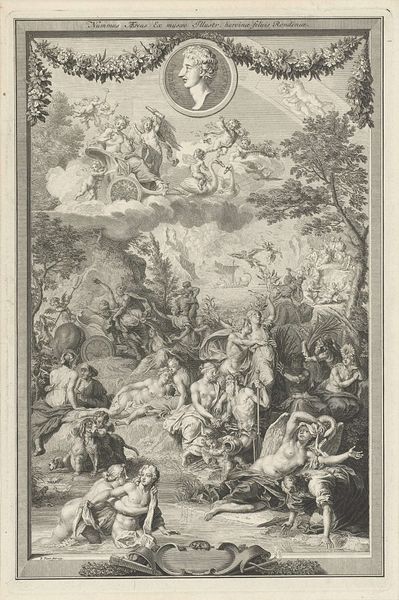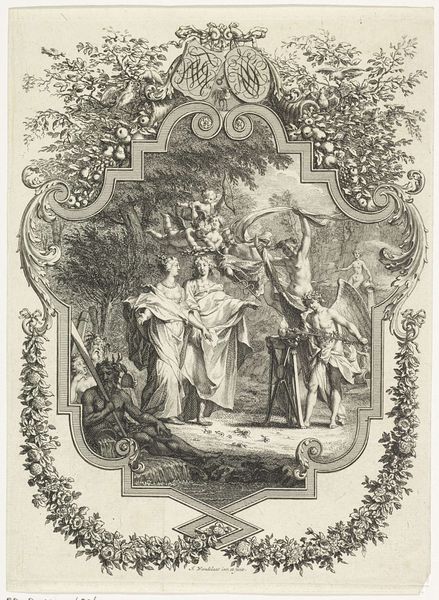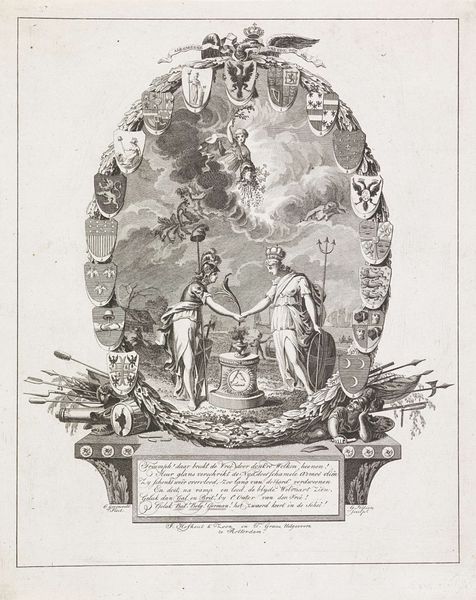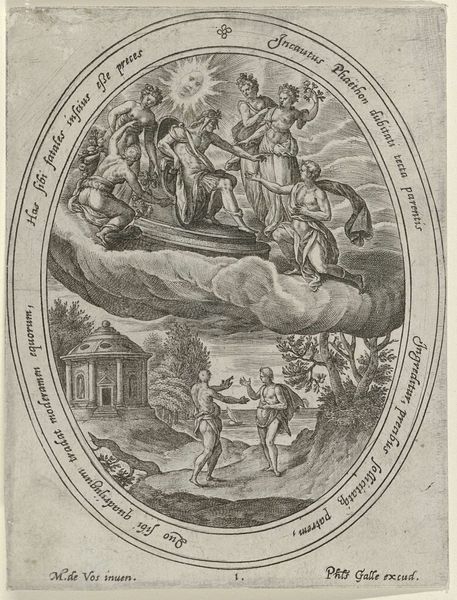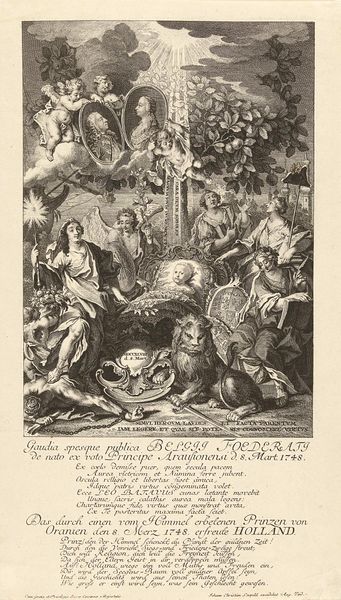
print, engraving
#
baroque
# print
#
old engraving style
#
landscape
#
figuration
#
line
#
history-painting
#
engraving
Dimensions: height 357 mm, width 256 mm, height 249 mm, width 175 mm
Copyright: Rijks Museum: Open Domain
Editor: We’re looking at “Apollo achtervolgt Daphne,” or “Apollo Pursuing Daphne,” an engraving from 1733 by Bernard Picart. It’s so detailed, but I find the figures to be unsettling. There’s an element of struggle here. What are your initial thoughts about the image? Curator: Struggle, indeed. The Baroque aesthetic revels in high drama. Daphne's transformation, as Ovid recounts, wasn’t just physical; it was psychological, a desperate attempt to escape Apollo's unwanted attention. Consider the laurel tree—a potent symbol of chastity, triumph, and poetic immortality. Note how Daphne’s fingers sprout leaves, a direct symbol of metamorphosis. Editor: So, you're saying the tree represents more than just an escape? Curator: Absolutely. The laurel isn't simply a hiding place, but a symbol of female agency denied by force. Consider what this meant to the aristocratic audiences who delighted in such prints. A beautiful woman resisting unwanted male power using spiritual assistance. Do you see echoes of other myths in this narrative? Editor: It feels similar to the story of Persephone and Hades, though it has a completely different tone. Both revolve around the loss of freedom. It feels as if Daphne is entombed in the tree; becoming bark has connotations of pain, as it limits human experience and liberty. Curator: Precisely. These repeated narratives and visual cues point to enduring themes in Western art and thought, resonating even today when discussing personal autonomy and the power structures that govern our choices. Editor: I didn't realize how layered such an old work can be! Now the struggle I perceived in the artwork goes beyond what I initially thought, becoming something more profound. Curator: Every visual element, chosen and carefully rendered, invites deeper exploration. And every viewing across time may open up additional dimensions of meaning to consider.
Comments
No comments
Be the first to comment and join the conversation on the ultimate creative platform.
